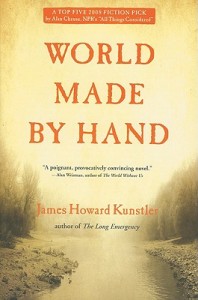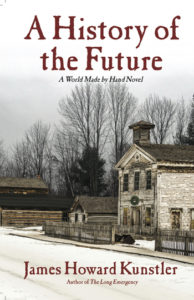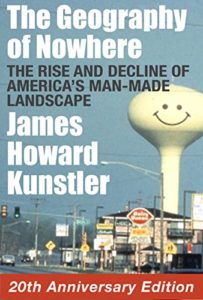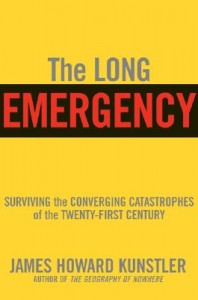Battle of the Behemoths
Clusterfuck Nation
Now appearing Mondays and Fridays
Support this blog by visiting Jim’s Patreon Page!
As the empire deliquesces into a fetid slurry of economic failure, we stand ankle deep in the rising swamp waters witnessing the futile battle of the giants, Walmart and Amazon.
Neil Howe, co-author of The Fourth Turning, wrote this week that “[t]he Amazon-Walmart rivalry will determine the future of retail.” Well, it seems that way, perhaps, and I understand why a lot of people would imagine it, but I would draw some different conclusions. What we’re seeing is more like the battle between Godzilla and King Kong, two freaks of nature produced by a toxic culture, fixing to finish each other off.
The condition that will flavor events going forward is scale. Everything organized at the giant scale is going to fail. We have made all the systems of daily life too large and they will not function in the long emergency (and the fourth turning), an age characterized by universal contraction. This is true of corporations, institutions, schools, hospitals, farms, governments, virtually all organized enterprise. Retail is currently just the most visible example at the moment, since it is a commercial battleground that doesn’t enjoy public subsidies. The organisms on that field are exquisitely sensitive to economic reality, and the salient reality these days is the impoverishment of their customers, the former middle class.
This has been a sensational year for retail failure so far with a record number of brick-and-mortar store closings. But it is hardly due solely to Internet shopping. The nation was vastly over-stored by big chain operations. Their replication was based on a suicidal business model that demanded constant expansion, and was nourished by a regime of ultra-low interest rates promulgated by the Federal Reserve (and its cheerleaders in the academic econ departments). The goal of the business model was to enrich the executives and shareholders as rapidly as possible, not to build sustainable enterprise. As the companies march off the cliff of bankruptcy, these individuals will be left with enormous fortunes — and the American landscape will be left with empty, flat-roofed, throwaway buildings unsuited to adaptive re-use. Eventually, the empty Walmarts will be among them.
Just about everybody yakking in the public arena assumes that commerce will just migrate to the web. Think again. What you’re seeing now is a very short term aberration, the terminal expression of the cheap oil economy that is fumbling to a close. Apart from Amazon’s failure so far to ever show a corporate profit, Internet shopping requires every purchase to make a journey in a truck to the customer. In theory, it might not seem all that different from the Monkey Ward model of a hundred years ago. But things have changed in this land.
We made the unfortunate decision to suburbanize the nation, and now we’re stuck with the results: a living arrangement that can’t be serviced or maintained going forward, a living arrangement with no future. This includes the home delivery of every product under sun to every farflung housing subdivision from Rancho Cucamonga to Hackensack. Of course, the Big Box model, like Walmart, has also recruited every householder in his or her SUV into the company’s distribution network, and that’s going to become a big problem, too, as the beleaguered middle-class finds itself incrementally foreclosed from Happy Motoring and sinking into conditions of overt peonage.
The actual destination of retail in America is to be severely downscaled and reorganized locally. Main Street will be the new mall, and it will be a whole lot less glitzy than the failed gallerias of yore, but it will represent a range of activities that will put a lot of people back to work at the community level. It will necessarily entail the rebuilding of local and regional wholesale networks and means of distribution that don’t require trucking.
If you think we’re just going to switch the trucking industry over to electric vehicles or engines that run on bio-fuels, hydrogen, compressed air, or natural gas, you will be disappointed. Ain’t going to happen. We’re going to have to come up with something else, starting with the basic idea of the walkable community. This implies that we’re going to have to revive the existing towns and small cities that fit that description. And it also implies that a great deal of American suburbia will have to be abandoned. The capital will not be there to reform it. In any case, commerce later on in this century is not going to be anything like the Blue Light Special orgy of recent decades. And the transition will get underway with a speed that will make your head spin.
Great Summer Reading… JHK’s new book!
“Simply the best novel about the 1960s.”
Read the first chapter here (click) on Patreon
Buy the book at Amazon or click on the cover below
or get autographed copies from Battenkill Books

Other Books by JHK
The World Made By Hand Series: Book 1:

Book 2:







Book 3:















Support this blog by visiting Jim’s Patreon Page


